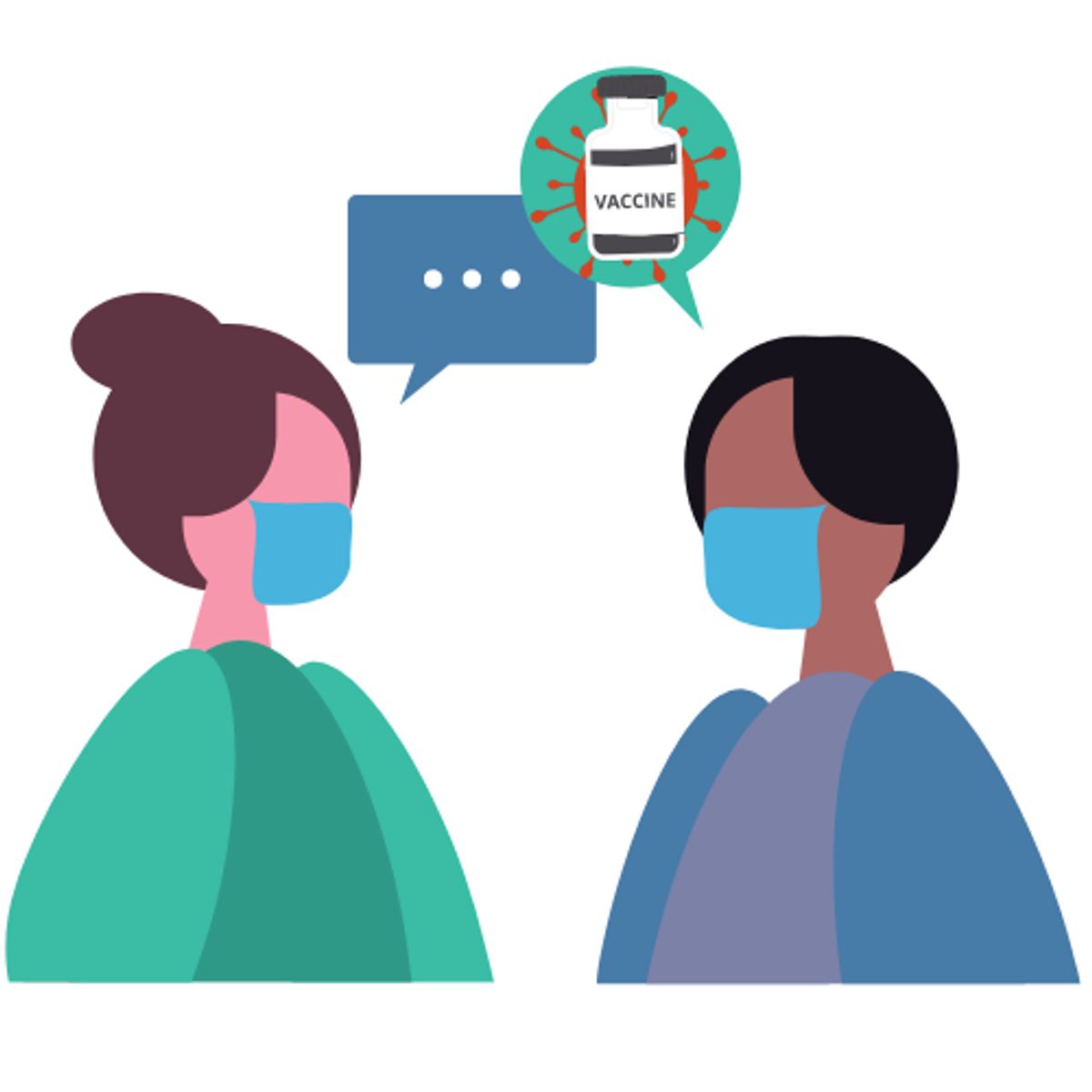School Nurse
Becoming a School Nurse: A Comprehensive Career Guide
A school nurse serves as a vital healthcare provider within the educational environment. Their role extends far beyond tending to scraped knees; they manage chronic health conditions, respond to emergencies, promote health education, and act as a crucial link between students, families, educators, and the wider healthcare system. They operate at the intersection of health and education, ensuring students are healthy, safe, and ready to learn.
Working as a school nurse offers unique rewards. You have the opportunity to make a significant impact on the well-being of children and adolescents during their formative years. The role often involves considerable autonomy in managing student health needs and developing health programs tailored to the school community. It's a dynamic career demanding clinical skill, compassion, and strong communication abilities.
What Does a School Nurse Do?
Understanding the day-to-day realities of school nursing is key to deciding if this path aligns with your professional goals and personal strengths. It's a multifaceted role requiring a blend of clinical expertise, educational outreach, and administrative diligence.
Providing Direct Healthcare Services
A primary function involves providing direct healthcare to students and staff. This includes assessing illnesses and injuries, administering first aid, and managing medical emergencies that occur during the school day. School nurses are often the first responders for incidents ranging from minor cuts to serious allergic reactions or accidents.
They conduct health screenings mandated by the state or district, such as vision and hearing tests, scoliosis checks, and growth monitoring. These screenings are crucial for identifying potential health issues early, allowing for timely intervention and referral. Accurate assessment requires keen observation and sound clinical judgment.
Emergency preparedness is another critical aspect. School nurses develop and implement emergency action plans for students with known severe health conditions like anaphylaxis or seizures. They ensure necessary medications and equipment are available and that staff members are trained to respond appropriately.
These courses cover essential emergency response skills relevant to the school setting.
Managing Chronic Health Conditions
Many students attend school with chronic health conditions such as asthma, diabetes, severe allergies, and seizure disorders. The school nurse plays a central role in managing these conditions safely and effectively within the school environment.
This involves developing individualized healthcare plans (IHPs) in collaboration with parents, physicians, and school staff. These plans outline specific care needs, medication administration protocols, emergency procedures, and necessary accommodations to ensure the student can participate fully in school activities.
Administering medications according to physician orders is a significant responsibility. School nurses must adhere strictly to protocols for storage, documentation, and administration, ensuring student safety and compliance with legal requirements. They also educate students, when age-appropriate, on managing their own conditions.
This course specifically addresses common chronic conditions managed in schools.
These books offer insights into managing students with specific needs, which can be helpful context for healthcare planning.
Promoting Health and Wellness
School nurses are key players in promoting overall student and staff wellness. They provide health education on various topics, including nutrition, physical activity, hygiene, mental health, and substance abuse prevention. This education can take place in classrooms, during health fairs, or through individual counseling.
They often lead initiatives to create a healthier school environment, such as promoting healthy food choices in the cafeteria or advocating for increased physical activity opportunities. Identifying health trends within the school population and developing targeted interventions is also part of their public health function.
Furthermore, school nurses serve as consultants to teachers and administrators on health-related matters, helping to integrate health considerations into school policies and curriculum development. They champion evidence-based practices to support student well-being.
These courses provide foundational knowledge relevant to promoting health among children and adolescents.
Collaboration and Communication
Effective school nursing requires strong collaboration and communication skills. Nurses regularly interact with students, parents, teachers, administrators, school counselors, social workers, and community healthcare providers.
Communicating sensitive health information clearly and compassionately to students and families is essential. This includes discussing diagnoses, treatment plans, and necessary follow-up care. They also act as advocates for students' health needs within the school system.
Maintaining accurate and confidential health records is a critical administrative task. School nurses meticulously document assessments, interventions, medication administration, and communication with parents and providers, often using specialized electronic health record (EHR) systems.
Educational Path to Becoming a School Nurse
Embarking on a career as a school nurse requires specific educational qualifications and licensure. Understanding the pathway can help you plan your journey effectively, whether you are starting your nursing education or transitioning from another nursing specialty.
Obtaining Your Nursing Degree and Licensure
The first step is typically to become a Registered Nurse (RN). This generally requires earning either an Associate Degree in Nursing (ADN) or a Bachelor of Science in Nursing (BSN) from an accredited nursing program. While an ADN qualifies you for RN licensure, many school districts increasingly prefer or require a BSN degree for school nurse positions due to the complexity and autonomy of the role.
After completing your nursing degree, you must pass the National Council Licensure Examination for Registered Nurses (NCLEX-RN) to obtain your RN license. This license is mandatory for practicing as a nurse in any setting.
Gaining clinical experience as an RN is often necessary before specializing in school nursing. Experience in pediatrics, community health, public health, or emergency nursing can be particularly beneficial, providing a strong foundation for the types of health issues encountered in schools.
State-Specific Requirements and Certification
Requirements for school nurses vary significantly by state and sometimes even by school district. Many states require specific certifications or credentials beyond the basic RN license to practice as a school nurse. This might involve completing a state-approved school nurse certification program or obtaining a specific credential from the state's Department of Education or Department of Health.
Some states mandate a minimum number of years of clinical nursing experience before one can become a school nurse. It's crucial to research the specific requirements in the state where you intend to practice. The National Association of School Nurses (NASN) website often provides links to state-specific information.
Voluntary national certification is available through the National Board for Certification of School Nurses (NBCSN), which offers the Nationally Certified School Nurse (NCSN) credential. While not always required for employment, achieving NCSN certification demonstrates a high level of expertise and commitment to the specialty and may be preferred by employers.
The Role of Clinical Experience
Hands-on clinical experience is invaluable. While nursing school provides foundational knowledge and skills, real-world practice hones assessment abilities, clinical judgment, and emergency response skills. Many school nurse roles require experience working with children and adolescents.
Relevant experience might include working in pediatric units in hospitals, community health clinics serving families, public health departments, or urgent care centers. This exposure helps nurses become comfortable managing a wide range of pediatric health concerns, both acute and chronic.
Shadowing an experienced school nurse can also provide practical insights into the daily routines, challenges, and rewards of the job. It helps bridge the gap between general nursing practice and the specific demands of the school setting.
Consider roles like Certified Nursing Assistant or Licensed Practical Nurse as potential stepping stones while pursuing further education, although requirements differ greatly.
Continuing Education and Lifelong Learning
Nursing is a field that requires continuous learning to stay current with best practices, new treatments, and evolving health guidelines. School nurses must fulfill continuing education requirements mandated by their state nursing board to maintain their RN license.
Beyond mandatory requirements, ongoing professional development is essential for growth in the specialty. This can include attending conferences, participating in workshops, reading professional journals, and taking specialized courses relevant to school health, pediatrics, mental health, or public health.
Joining professional organizations like NASN provides access to valuable resources, networking opportunities, and continuing education programs specifically tailored for school nurses. Staying engaged fosters professional growth and ensures high-quality care for students.
Leveraging Online Learning for School Nursing
Online learning platforms offer flexible and accessible ways to acquire knowledge and skills relevant to school nursing, whether you're building foundational knowledge, seeking specialized training, or fulfilling continuing education requirements. OpenCourser provides a vast catalog to explore courses in Health & Medicine.
Supplementing Formal Education
While core nursing degrees (ADN/BSN) typically require significant in-person clinical components, online courses can supplement formal education effectively. Students can use online resources to deepen their understanding of specific topics like pediatric assessment, pharmacology, or community health principles.
Online modules covering anatomy, physiology, or specific disease processes can reinforce classroom learning. Many platforms offer courses from reputable universities, providing high-quality content that can enhance a student's knowledge base beyond the standard curriculum.
For nurses transitioning into school nursing, online courses can bridge knowledge gaps. Courses focusing on child development, adolescent health issues, special education law, or mental health first aid can provide targeted learning relevant to the school environment.
This course provides foundational knowledge in human biology.
Specialized Skills Development
Online platforms offer a wealth of specialized courses relevant to the unique challenges of school nursing. You can find courses on managing specific chronic conditions commonly seen in schools, such as asthma, diabetes, and severe allergies, often taught by experts in the field.
Training in areas like mental health support, crisis intervention, and addressing non-suicidal self-injury is increasingly important. Online courses provide accessible training in these sensitive areas, equipping nurses with practical skills and strategies.
Courses focusing on public health principles, epidemiology, health education program development, and vaccination protocols can enhance a school nurse's ability to address population health issues within the school community. This broader perspective is vital for effective health promotion.
These courses offer specialized training relevant to school health contexts.
Integrating Online Learning with Practice
Online learning should complement, not replace, essential hands-on clinical experience. However, it provides invaluable theoretical knowledge and updates on best practices. Many online courses relevant to nursing offer continuing education units (CEUs) needed for license renewal.
Digital tools are increasingly used in school health offices. Online courses can provide training on using electronic health records (EHRs), telehealth platforms, and data management software relevant to school nursing practice. Familiarity with these technologies is becoming a key skill.
The flexibility of online learning allows busy nurses to pursue professional development at their own pace and on their own schedule. This accessibility makes it easier to stay current in the field while balancing work and personal commitments. Remember to check the OpenCourser Learner's Guide for tips on effective online study.
Essential Skills for School Nurses
Success as a school nurse hinges on a diverse skill set that combines clinical proficiency with strong interpersonal abilities. Mastering these skills enables nurses to provide comprehensive care and effectively navigate the complexities of the school environment.
Clinical Assessment and Critical Thinking
Sharp clinical assessment skills are fundamental. School nurses must quickly and accurately evaluate students' health complaints, differentiate between minor issues and potential emergencies, and decide on appropriate interventions or referrals. This requires a solid understanding of pediatric health and pathophysiology.
Critical thinking is crucial for analyzing situations, interpreting data (like vital signs or screening results), and making sound clinical judgments, often with limited information or resources. They must prioritize care effectively, especially when managing multiple student needs simultaneously.
Knowledge of first aid and emergency response protocols, including CPR and managing anaphylaxis or seizures, is non-negotiable. Regular practice and certification updates ensure readiness for urgent situations.
These courses focus on vital first aid and emergency skills.
Communication and Interpersonal Skills
School nurses interact with a wide range of individuals daily. Clear, empathetic, and age-appropriate communication is essential when talking with students, whether explaining a procedure, providing health counseling, or comforting an anxious child.
Effective communication with parents and guardians is vital for coordinating care, discussing health concerns, and building trust. This often involves navigating sensitive topics and ensuring families feel heard and supported.
Collaboration with teachers, administrators, counselors, and other school staff requires strong interpersonal skills. Nurses must communicate health needs and plans clearly, provide training when necessary, and work as part of an interdisciplinary team to support student success.
Cultural Competency and Advocacy
Schools often serve diverse student populations from various cultural, ethnic, and socioeconomic backgrounds. Cultural competency – understanding and respecting diverse beliefs, values, and practices related to health – is essential for providing equitable and effective care.
School nurses must be sensitive to cultural factors that may influence a family's health decisions or communication styles. Building rapport and trust requires acknowledging and respecting these differences.
Advocacy is another key skill. School nurses often advocate for students' health needs, ensuring they receive necessary accommodations, access to healthcare services, and support for managing chronic conditions. This may involve advocating with school staff, administrators, or community agencies.
Organization and Documentation
Managing a school health office requires strong organizational skills. School nurses oversee health records, manage medication administration logs, track immunizations, schedule screenings, and maintain inventory of supplies.
Accurate, thorough, and timely documentation is critical for continuity of care, legal protection, and communication. Proficiency with electronic health record (EHR) systems or other documentation software used by the district is often required.
Time management skills are essential for balancing routine tasks, responding to unexpected illnesses or injuries, conducting health education, and attending meetings, all within the constraints of the school day.
This book touches upon assessment, a core part of documentation.
Career Path and Advancement Opportunities
A career in school nursing offers various opportunities for growth and specialization. Understanding the potential career trajectory can help you set long-term professional goals within this rewarding field.
From Entry-Level to Experienced Practitioner
Most school nurses begin their careers working in a single school building. In this role, they gain hands-on experience managing the day-to-day health needs of students, implementing health plans, and collaborating with school staff and families.
With experience, school nurses develop expertise in areas like pediatric assessment, chronic disease management in the school setting, and emergency preparedness. They become adept at navigating the specific challenges and rewards of providing healthcare within an educational environment.
Experienced school nurses often take on mentorship roles for new nurses entering the field. They may also lead school-wide health initiatives or serve on district health committees, contributing their expertise to broader policy and program development.
Leadership and Administrative Roles
Opportunities exist for advancement into leadership and administrative positions. Some experienced school nurses become lead nurses or nurse coordinators for their school district. In these roles, they oversee the nursing staff across multiple schools, develop district-wide health policies and procedures, manage budgets, and ensure compliance with regulations.
These leadership roles often require advanced education, such as a Master of Science in Nursing (MSN) degree, possibly with a focus on nursing administration, public health, or community health. Strong leadership, management, and communication skills are essential.
Transitioning into school administration or public health administration roles outside of direct nursing practice is another potential path. The skills and experience gained as a school nurse provide a solid foundation for broader roles focused on health policy, program management, or community health leadership.
This course explores leadership concepts within nursing informatics, a related field.
Consider exploring roles like Nurse Practitioner for advanced clinical practice.
Specialization and Advanced Practice
School nurses can pursue advanced certifications to deepen their expertise. The Nationally Certified School Nurse (NCSN) credential is a widely recognized mark of specialization. Other certifications in areas like pediatric nursing, public health, or diabetes education can also enhance career prospects.
Some school nurses may choose to pursue advanced practice nursing degrees, such as becoming a Pediatric Nurse Practitioner (PNP) or Family Nurse Practitioner (FNP). While this often leads to roles outside the traditional school nurse position, some districts employ nurse practitioners in expanded roles, particularly in school-based health centers.
Engaging in research or contributing to professional publications are other ways experienced school nurses can advance the field. Presenting at conferences or participating in professional organizations like NASN provides opportunities for networking and contributing to the specialty.
Navigating the Challenges in School Nursing
While school nursing is a fulfilling career, it's not without its challenges. Being aware of potential difficulties helps aspiring and current nurses prepare and develop strategies for resilience and effective practice.
Managing Complex Health Needs
Students today present with increasingly complex health issues, including severe chronic conditions, significant mental health challenges, and complex social needs. Managing these diverse needs within the school setting can be demanding.
School nurses often work with limited resources, including staffing, supplies, and access to specialized healthcare services. This can make it challenging to provide the ideal level of care for every student.
Coordinating care among multiple providers, agencies, and family members requires significant time and effort. Communication barriers or lack of follow-through can sometimes impede effective care management.
Ethical Considerations and Legal Responsibilities
School nurses frequently encounter ethical dilemmas related to student confidentiality, parental rights, mandatory reporting requirements (e.g., for suspected abuse or neglect), and resource allocation. Navigating these situations requires sound ethical judgment and knowledge of relevant laws and regulations.
Maintaining student privacy while ensuring necessary health information is shared appropriately with relevant staff (e.g., teachers needing to know about a student's allergy) is a constant balancing act.
Staying current with federal, state, and local laws pertaining to school health, special education (like IDEA and Section 504), and nursing practice is essential to ensure compliance and protect both students and the nurse's license.
Workload and Potential for Burnout
The workload for school nurses can be heavy, especially in districts with high nurse-to-student ratios. Juggling routine care, unexpected emergencies, administrative tasks, health education, and meetings can lead to significant stress.
School nurses often work in relative isolation compared to hospital settings, lacking immediate peer support for complex cases or stressful situations. This can contribute to feelings of overwhelm.
Like many healthcare professions, school nursing carries a risk of burnout due to high demands, emotional stress, and resource limitations. Developing strong self-care practices, setting boundaries, seeking peer support, and utilizing available resources are crucial for preventing burnout and maintaining long-term career satisfaction.
This book, while for teachers, offers insights into student needs that can indirectly inform workload management.
The School Nurse's Role in the Public Health System
School nurses function as essential public health professionals within the community. Their work extends beyond individual student care to encompass broader health promotion and disease prevention efforts that impact the entire school population.
Disease Surveillance and Prevention
School nurses are on the front lines of disease surveillance. They monitor attendance patterns and track communicable diseases like influenza, pertussis, or conjunctivitis, reporting trends to local health departments as required. This surveillance is critical for identifying and responding to outbreaks quickly.
They play a vital role in immunization programs, ensuring students meet state-mandated vaccination requirements. This involves tracking immunization records, educating parents about vaccine importance and schedules, and sometimes administering vaccines through school-based clinics.
During public health crises, such as pandemics, school nurses are key figures in implementing mitigation strategies, providing accurate health information, and supporting the school community's response, as highlighted by resources from organizations like the CDC's Division of Adolescent and School Health.
Health Promotion and Screening Initiatives
School nurses lead various health promotion initiatives aimed at improving the long-term health of students. This includes programs focused on nutrition education, physical activity encouragement, tobacco and substance use prevention, and mental health awareness.
Mandated health screenings (vision, hearing, etc.) conducted by school nurses serve as important public health tools for early detection of potential problems that could impede learning or development. They ensure appropriate referrals are made for follow-up care.
School nurses often collaborate with community organizations and public health agencies to bring additional health resources and programs into the school, such as dental screenings or mobile health clinics.
Connecting Families to Community Resources
School nurses often identify students and families with unmet health needs, including lack of health insurance, food insecurity, or difficulty accessing medical or dental care. They serve as a crucial link, connecting families to relevant community resources and support services.
They build relationships with local healthcare providers, social service agencies, and community organizations to facilitate referrals and ensure continuity of care between the school and the broader healthcare system.
By addressing social determinants of health and helping families navigate complex systems, school nurses contribute significantly to health equity and improved outcomes for vulnerable student populations.
Future Outlook for School Nursing
The field of school nursing is continually evolving in response to changing healthcare landscapes, technological advancements, and emerging student health needs. Staying informed about future trends is important for career planning and adaptation.
Integration of Technology and Telehealth
Technology is playing an increasingly significant role in school health. Electronic health records (EHRs) are becoming more common, improving documentation efficiency and data analysis capabilities. Familiarity with EHR systems is a valuable skill.
Telehealth has the potential to expand access to specialized care within the school setting. School nurses may facilitate telehealth consultations between students and off-site providers, particularly for mental health services or specialist follow-ups. Understanding telehealth platforms and protocols will likely become more important.
Wearable technology and health monitoring apps may offer new ways to track student health data (e.g., for diabetes management), requiring nurses to adapt to interpreting and integrating this information into care plans.
Focus on Mental and Behavioral Health
There is growing recognition of the significant mental and behavioral health needs among children and adolescents. School nurses are increasingly involved in identifying students struggling with anxiety, depression, trauma, or other mental health issues.
This requires enhanced training in mental health first aid, crisis intervention, and collaboration with school counselors, social workers, and community mental health providers. School nurses play a vital role in reducing stigma and connecting students to appropriate support services.
Future roles may involve more direct participation in mental health screening programs and providing brief interventions or support groups within the school setting, depending on training and resources.
Policy, Funding, and Advocacy
Advocacy for adequate funding and staffing for school nursing services remains crucial. The role of school nurses in promoting student health and academic success is increasingly recognized, but resource allocation often lags behind the need. According to the Bureau of Labor Statistics, overall employment for registered nurses is projected to grow, but specific funding for school positions depends on state and local budgets.
School nurses will continue to play a key role in advocating for policies that support student health, such as comprehensive health education standards, policies addressing bullying and violence, and environmental health initiatives in schools.
Data collection and demonstrating the impact of school nursing services on student outcomes (e.g., attendance, academic performance, health metrics) will be important for justifying resources and influencing policy decisions.
Frequently Asked Questions about School Nursing
Here are answers to some common questions individuals consider when exploring a career as a school nurse.
What is the typical salary range for a school nurse?
Salaries for school nurses vary widely based on geographic location, years of experience, level of education (ADN vs. BSN vs. MSN), and the specific school district's pay scale (often tied to teacher salary schedules). Generally, salaries may be lower than in acute care hospital settings.
Pay can range significantly, with urban areas or states with higher costs of living often offering higher salaries. Checking specific district salary schedules or resources like the BLS Occupational Outlook Handbook for Registered Nurses can provide more localized data.
Benefits packages, including health insurance, retirement plans, and paid time off (often aligned with the school calendar), are important components of total compensation to consider.
Are school nursing positions typically full-time or part-time?
Both full-time and part-time positions exist, although full-time roles are more common, especially in larger schools or districts. Part-time opportunities may be available in smaller schools, private schools, or through float pool positions covering multiple buildings.
The work schedule generally follows the school calendar, meaning nurses often have evenings, weekends, holidays, and summers off. This predictable schedule is a significant draw for many nurses seeking better work-life balance compared to hospital shift work.
Some districts may employ nurses on 10-month contracts, while others offer 11- or 12-month contracts, potentially involving summer school duties or administrative work during breaks.
How does school nursing differ from hospital nursing?
School nursing emphasizes autonomy, health promotion, prevention, and managing chronic conditions in a non-acute setting. Hospital nursing typically focuses on acute care, specialized procedures, and managing critically ill patients in a fast-paced environment.
School nurses often work more independently and manage a broader range of health issues across a diverse student population. They have significant responsibilities in health education, case management, and collaboration with non-medical personnel.
The transition from hospital to school nursing requires adapting to a different pace, scope of practice, and work environment. Strong assessment, communication, and organizational skills are crucial in both settings, but their application differs.
What impact do nursing shortages have on school nursing?
General nursing shortages can impact the availability of qualified school nurses, potentially leading to higher nurse-to-student ratios in some districts. This can increase workload and stress for existing school nurses.
Shortages may create more job opportunities but can also strain resources and make it harder to provide comprehensive care. Advocacy for adequate staffing levels is critical to ensure student safety and well-being.
Districts facing shortages might explore different staffing models, potentially increasing reliance on health aides supervised by an RN or utilizing telehealth services more extensively.
What technology is essential for modern school nurses?
Proficiency with computers and basic software is essential for documentation, communication, and accessing health information. Familiarity with electronic health record (EHR) systems used by the school district is increasingly important.
Knowledge of online databases for health research and accessing evidence-based guidelines is necessary. Understanding how to use digital communication tools effectively (email, secure messaging) for collaborating with parents and providers is also key.
Depending on the school's resources, familiarity with telehealth platforms, health screening equipment (audiometers, vision charts), and devices used for managing chronic conditions (e.g., glucometers, insulin pumps) may be required.
What is the long-term career outlook for school nurses?
The long-term outlook is generally stable, driven by the ongoing need for health services in schools and the increasing complexity of student health issues. The emphasis on preventative care and managing chronic conditions reinforces the value of school nurses.
Opportunities for advancement into leadership, specialization, or related fields like public health provide avenues for career growth. Continued professional development and certifications like the NCSN can enhance career prospects.
Factors like school funding, evolving healthcare policies, and the integration of technology will shape the future role, but the core mission of supporting student health and learning remains central to the profession.
Becoming a school nurse is a commitment to the health and success of young people. It requires a unique blend of clinical skills, compassion, and dedication. For those passionate about pediatric health and making a difference in the community, it offers a deeply rewarding career path. Explore resources on OpenCourser to find courses and books that can support your journey.

















